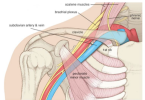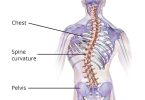Submitted by Total Package Hockey
The continuum of performance is a lifestyle, not a game-day decision. Athletes achieve peak performance by recognizing the contributing factors that foster performance. Two of those factors that are often overlooked or misunderstood are nutrition and sleep.
Athletes often underutilize the benefits in nutrition to aid their performance. The nutrient requirement of athletes is often higher than the average person. Carbohydrates, protein and healthy fats provide the fuel needed to maintain energy during training and competition. Carbohydrates are involved in regulating blood sugar and glycogen levels in your muscles, which is vital in preventing muscle fatigue. Fat provides essential fatty acids, which your body uses as an energy source. Protein helps build new tissue and is also used an energy source.
Proper nutrition is central to maintaining a healthy body weight, but it is important to recognize that there is an ‘optimal’ weight for every individual. Making drastic changes, such as severely restricting calories, protein or fat can not only be dangerous but can also negatively affect your performance. It’s important to understand that every individual requires specific and unique nutritional recommendations.
Staying hydrated is also vital to performance. Although water is not a main source of energy, dehydration leads to a decrease in performance and energy levels. Proper hydration leads to better circulation to the working muscles and helps with efficient bodily function. It is recommended that an athlete consume 0.6-0.7 ounces of water for every pound of body weight on a daily basis. Post training or competition, an athlete should consume 500-750ml of water for every pound of body weight lost during activity. Researchers have demonstrated significant losses in power output as a result of dehydration (approximately 19% loss in power output).
Getting enough sleep is also crucial for athletic performance. Studies have found that sleep can improve speed, accuracy, and reaction time in athletes. On average, most people need about 7-9 hours of sleep per night. However, if you are an athlete in training, that may not be enough. The built-up stress of training and practice requires more time to recover. Management strategies can include an earlier bedtime, or even an afternoon nap. Most athletes underestimate the importance of sleep, but this area of performance cannot be overlooked! Sleep deprivation can lead to decreased energy (reduced ability to store glycogen) and hormonal changes (increased levels of cortisol, a stress hormone).
Understand that it is the choices you make day in and day out that will have the largest affect on your performance. Simply ‘eating right’ on the day of competition will not cut it.
www.totalpackagehockey.ca







